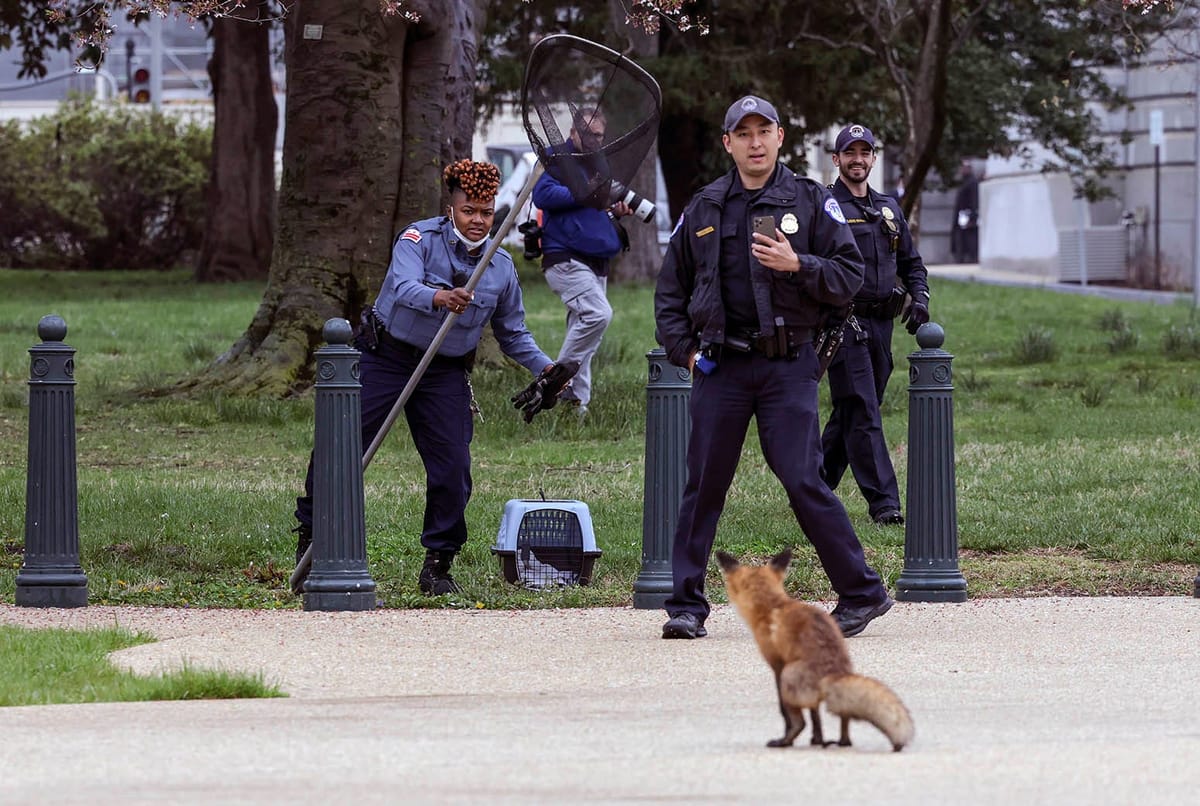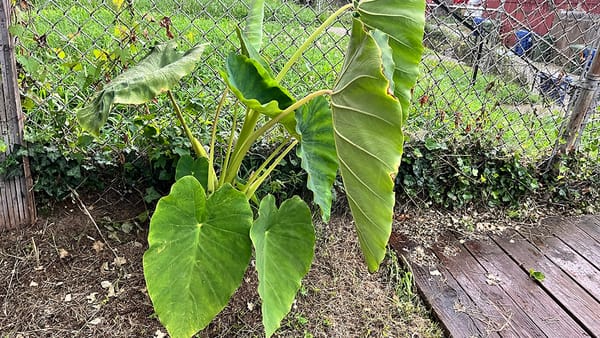Indignity, Vol. 2, No. 29: Reality Bites
CAUSE AND EFFECT DEP'T.

What Does the Fox Say?
THE CAPITOL HILL FOX showed up, ran around the Congressional grounds for a few days, and bit nine different people. Eventually, animal control workers captured it. Online and in the press, it played as an amusing and distracting mini-event for a few days, like the runaway llamas had been, long ago, on the last day that everyone enjoyed the internet.
By Wednesday, the news came out, less amusingly, that this wild animal that had showed itself in broad daylight and attacked people at random had in fact been carrying rabies—as any pre-internet human being would have known at once, if they had encountered such a fox or reports of a such fox in their real and localized life, rather than as the idea of a fox, generally distributed to the public. The Washington D.C. health department began tracking down the people who'd been bitten, to get them rabies shots.
Why, at this point, does God even bother sending metaphors? Even as the fox was testing positive for rabies, a roster of prominent Democrats began testing positive for the SARS-CoV-2 virus. It quickly became evident that the previous weekend's Gridiron Dinner—the dusty political-comedy revue where political leaders and leading political journalists entertain themselves with topical skits—had been a superspreader event.
At the dinner, the Washington Post reported, a performer impersonating Dr. Anthony Fauci "sang from the stage to the real Fauci in the audience: 'Doctor, doctor, give me some clues, we’ve got a bad case of covid blues.'" The evening also featured "actors dressed as the coronavirus, like large, green bouncing balls with red frills." (For comparison, in "The Mask of the Red Death," Poe supposed that even the most decadent plague-time revelers would be appalled and outraged to see someone show up at their party costumed as the Red Death.)
By Thursday, House Speaker Nancy Pelosi had tested positive for the virus. Hours after the Senate confirmed Ketanji Brown Jackson to the Supreme Court by a narrow margin, two of the senators who'd voted for her—Georgia Democrat Raphael Warnock and Maine Republican Susan Collins, one of the few Republicans to attend the Gridiron—announced they had the virus as well.
The inescapable Leana Wen, in her role as volunteer pardoner of the Covid-promoting political class, immediately popped up in the Washington Post opinion section to declare that it was, in fact, right and good that the most powerful people in Washington had all taken the chance to infect one another. It was, Wen wrote, an example of "what living with Covid-19 looks like":
There are those who would argue it’s irresponsible to hold parties that could turn into super-spreader events. That was true before vaccines were widely available, but it’s no longer realistic. We need to use a different paradigm—one that’s based on individuals being thoughtful about their own risks and the risks they pose to others.
Wen was right that the Gridiron exemplified the current state of Covid response, though not in the cheerfully Panglossian sense she meant it. Not once in her account of "individuals being thoughtful about their own risks" did she mention the workers who had staffed the dinner, or whether anyone had asked them about their personal risk budget. That would require her to consider the pandemic as an interdependent society-wide problem, rather than a collection of atomized choices about how much any particular person might worry about getting sick. If you're at higher risk of severe illness, she advised, "have a plan for what happens if you get Covid-19."
The Gridiron provided a particularly grim example around which to argue that nobody is responsible for anybody else. Wen didn't bring up the fact that the Congress members at the dinner had allowed funding for Covid testing, vaccination, and treatment to lapse, making it harder for the Gridiron organizers, let alone the waiters, to make informed judgments about the risks of the event. Nor that Congress had dithered about and resisted the Biden administration's March request for $22.5 billion in new Covid funds until it dwindled to a tentative deal for only $10 billion—a deal that Congress still didn't bother passing this week, before everyone left for their two-week spring recess.
There aren't enough rabid foxes available to bite everyone who needs to be bitten. The New York Times reported that the inspector general of the Department of Homeland Security had censored a draft report on widespread misconduct in the department, part of an ongoing pattern of the inspector general—a Donald Trump appointee—interfering to block investigations and discipline. The Trump administration, the Times noted, had carried out a late-term purge and replacement of inspectors general, "a violation of norms that undercut the traditional independence of the office."
Confronted with this situation, the Times reported, "[t]he Biden administration had also considered removing several controversial inspectors general appointed by Mr. Trump, but ultimately demurred — wary of further eroding the norms of government it had vowed to restore." The act of cleaning up bad government, that is, would violate the appearance of good government.
This is apparently the same logic by which Attorney General Merrick Garland has so far declined to prosecute the people who organized the Jan. 6 attack on the Capitol and the conspiracy to block the electoral college count. Using the power of law enforcement against Donald Trump and his advisers, to punish their attempt to overthrow Biden's election, would mean admitting that our existing norms and political habits are not enough to guarantee the peaceful transition of power. Better to assume the conflict is all in the past, in the hopes of avoiding more conflict in the future.
Merrick Garland also attended the Gridiron Dinner, after which he reportedly tested positive for the coronavirus.






